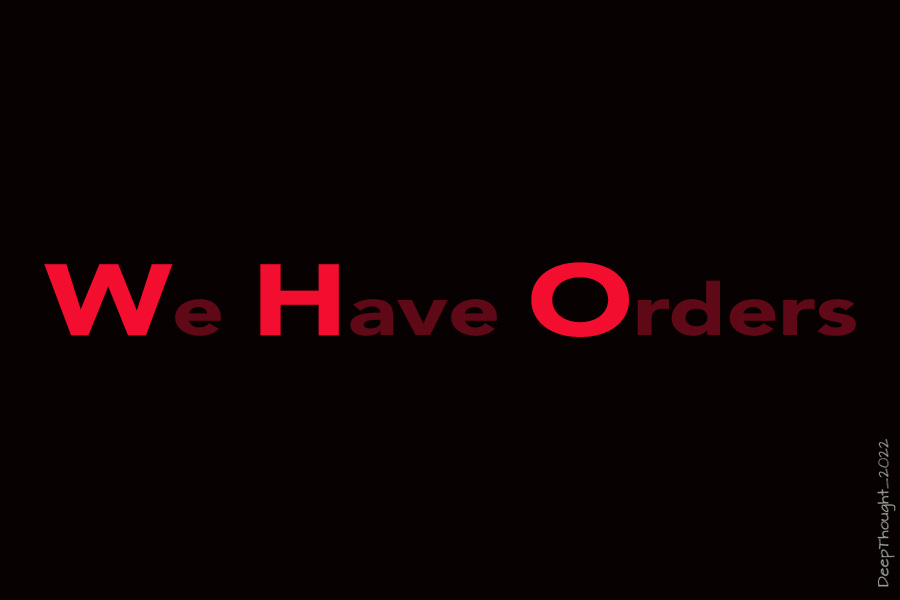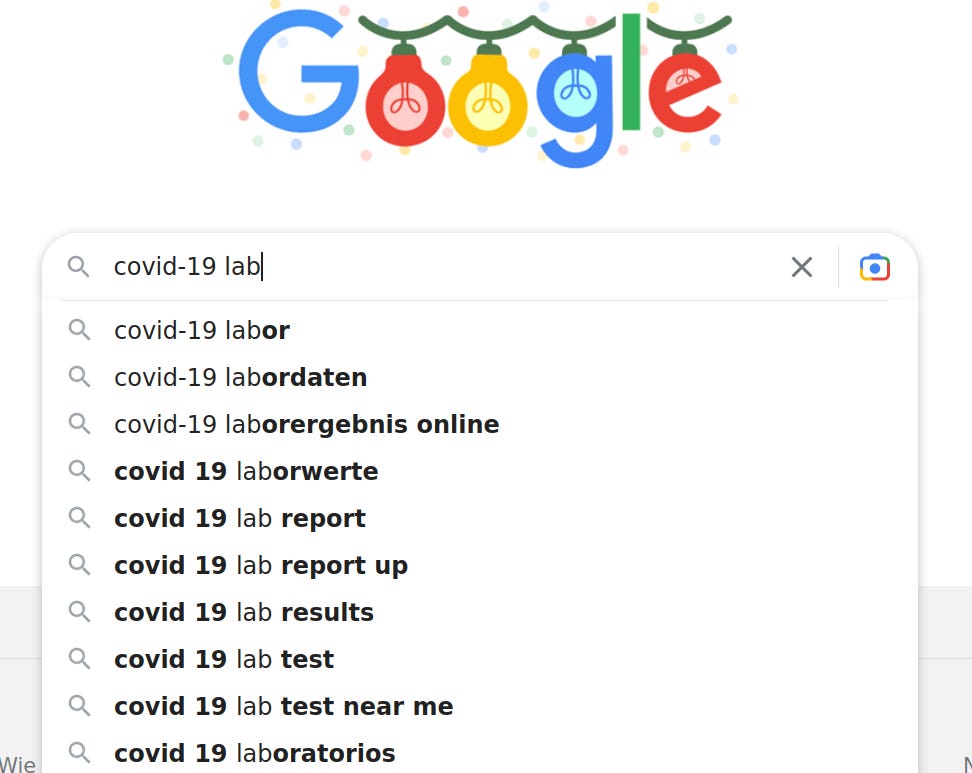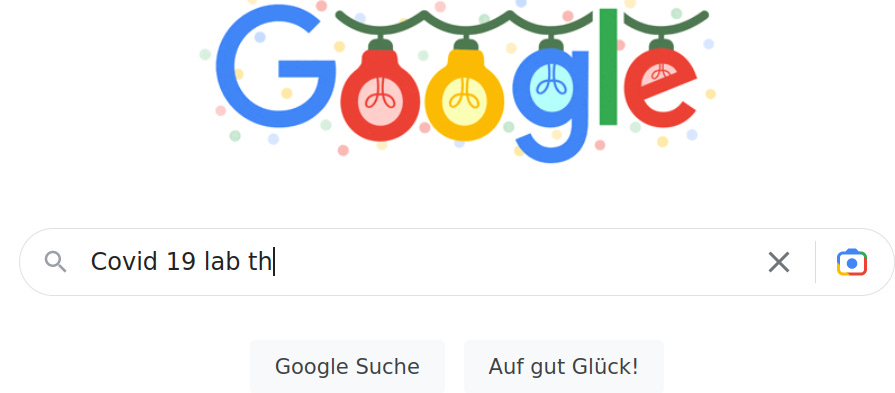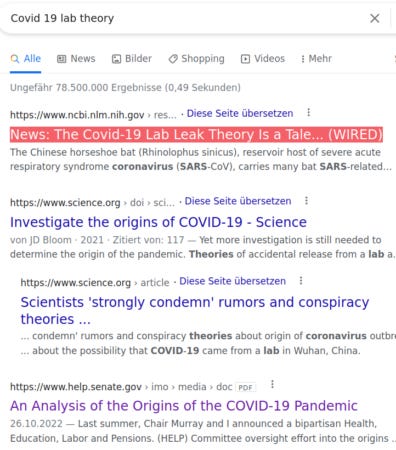How WHO is controlling social media
On their official website they even brag about the removal of 850,000 YouTube videos from February 2020 to January 2021
A guest post by German blogger Norbert Häring, December 4
The World Health Organization (WHO) has a webpage, which lists and describes the various ways in which the UN-organization, which is predominantly financed by large corporations and their foundations, is controlling and manipulating social media to make sure that only their version of science and truth gets distributed widely. It is a scary and outrageous read.
The webpage Combatting misinformation online describes how WHO has been directly involved in formulating the guidelines of large social media platforms on what can be said and what will be censored and brags about the huge number of videos and other content that have been censored on that basis:
“WHO works with social media policy departments to ensure company policy and guidelines for content providers are fit for purpose. For example, WHO worked with YouTube to enhance their COVID-19 Misinformation Policy and provide guidelines for content providers to ensure no medical misinformation related to the virus proliferates on their platform. Policy updates such as this have led to the removal of 850,000 YouTube videos related to harmful or misleading COVID-19 misinformation from February 2020 to January 2021.”
It also describes how WHO is directly involved in the censorship activity regarding individual posts on social media which “break policy”. Under the headline “Reporting Misinformation” they write:
“Social media platforms have also granted WHO access to fast track reporting systems, which allows us to flag misinformation on their platforms, speeding up the reporting and removal of content that breaks policy. WHO also works with Member States such as the Government of the United Kingdom to raise awareness of misinformation around COVID-19 and vaccines, and encourage individuals to report false or misleading content online.”
WHO and the big platforms are closely cooperating in the surveillance of all social media content in order for them to be continuously aware of any emerging divergence of public opinion from the official narrative that might require counter-measures:
“On a weekly basis, WHO works with YouTube, Google, Facebook and several other partners such as NewsGuard to obtain industry-leading insights that help identify burgeoning misinformation and subsequently allows WHO to target science-based health information where it’s needed most.”
NewsGuard, a US-organization founded by prominent mainstream ex-journalists, is rating the supposed “trustworthiness” of news sites, assembling negative-lists of supposedly unreliable sources, which they flag to internet users and advertisers. They seem to have a crucial role in the cooperation of WHO with social media. According to the WHO website:
“WHO works with NewsGuard Technologies to receive the latest trends on misinformation topics and identify which websites and accounts are spreading it. NewsGuard also makes data on misinformation available as an electronic feed to relevant social media and search platforms.”
News Guard, in their press release on the “WHO Partnership” from August 2020 clarify that “Key NewsGuard data will be made available to digital platforms, including Facebook, Google/YouTube, Twitter and TikTok, at the direction of the WHO.”
Thus, the cooperation works like this: News Guard provides WHO with a list of the most influential spreaders of information not conforming to the official narrative and WHO tells the social media platforms to look at the list and do something about it, i.e. cancelling the accounts of the respective news sites, blocking sharing of their stories, shadow-banning them or other such measures.
Monopolizing search results
Google provides WHO an analysis of users’ search queries and lets them use their survey-tools to test health messages:
“WHO works with Google Ads to identify rising search and misinformation queries on COVID-19 and uses Google consumer surveys to track how vaccine acceptance varies over time and between countries. The team is also testing health messages to track what key messages and topics resonate best for different target audiences. The preliminary results have already yielded actionable insights for WHO.”
Much more importantly, Google, with its market dominating search engine, makes sure that people searching for health related information of interest to WHO will only be provided with search results conforming to the WHO narrative on the first few pages of results. Hardly anybody reads any further. The WHO describes this in the following way:
“Matching Google Search with Reliable Information: WHO is also working with search engines like Google to ensure that people who actively seek COVID-19 related content online are met with accurate information, often tailored by location and language. Most recently, in March 2021, WHO and Google launched an organized search results panel on COVID-19 vaccines with the most up-to-date information about safety, effectiveness, side-effects and more.”
Facebook is enlisted in a similar way:
“Facebook has also directed billions of people globally to resources from the WHO and other health authorities through their COVID-19 Information Center and informative pop-ups on Facebook and Instagram, with hundreds of millions clicking through to learn more from trusted sources.”
This hidden advertising by WHO of their narrative via facebook and Google is complemented by free space for open advertising that social media platforms, search engines and TV-channels have gifted to WHO.
A fact-checking network at WHO’s service
WHO is cooperating with the International Fact Checking Network (IFCN) at the Poynter Institute. IFCN is the umbrella organization for fact-checkers defending the official narrative around the world, connecting them with each other and resources to counter deviant information.
IFCN’s database of more than 10,000 “fact checks” on COVID-19 related “misinformation” is touted as a resource for fact-checkers, journalists, researchers and users.
To secured fact checking contracts with social media platforms like Facebook, fact-checkers need to be licensed by IFCN. IFCN has guidelines on which kinds of news and news sources are worth a check. The focus is squarely on off-mainstream media. IFCN is financially supporting fact checking organizations it approves of.
The Network itself is sponsored by, amoung others, US Department of State, National Endowment for Democracy (NED), Omidyar Network Foundation. Bill & Melinda Gates Foundation, Open Society Foundations, Google, Facebook. Gates Foundation and US Government are also the two most important sources of founding of WHO.
Manipulating Wikipedia
WHO has teamed up with Wikimedia Foundation, the nonprofit that administers Wikipedia, “to expand the public’s access and share WHO infographics, videos, and other public health assets on Wikimedia Commons, a digital library of free images and other multimedia.” Wikipedia’s volunteer editors are meant to use these to expand the site’s COVID-19 coverage, which according to WHO “currently offers more than 5,200 coronavirus-related articles in 175 languages.”
The cooperation seems to go a lot further, though, as the press release from October 2020 on the cooperation hints by adding:
“Wikipedia editors have similarly been on the frontlines of preventing the spread of misinformation surrounding the coronavirus, ensuring information about the pandemic is based on reliable sources and updated regularly on Wikipedia.”
From an article in Wired one can learn that there is a small dedicated team of editors for sensitive health related articles on Wikipedia that are flagged in the background as such. Regular pro-bono editors have a hard time to leave a mark in these articles and the bar for sufficiently reliable sourcing is particularly high. Only information backed up by sources that this inner circle of health editors regards as reliable can be included in these articles.
The result is very friendly to the line of WHO, as the article on Covid-19 misinformation illustrates. Early on, it says:
“The World Health Organization (WHO) declared an “infodemic” of incorrect information about the virus that poses risks to global health. While belief in conspiracy theories is not a new phenomenon, in the context of the COVID-19 pandemic, this can lead to adverse health effects.”
It proceeds by listing such hypothesis under covid-19 misinformation as:
“Wuhan Lab Origin: The consensus among virologists is that the most likely origin of the SARS-CoV-2 virus to be natural crossover from animals, having spilled-over into the human population from bats, possibly through an intermediate animal host, although the exact transmission pathway has not been determined. Genomic evidence suggests an ancestor virus of SARS-CoV-2 originated in horseshoe bats.”
In December 2022, this view is certainly severely outdated, as leaked e-mails of top scientists, many with links to gain of function research at Wuhan, have shown that they have conspired early on, to portray the lab-origin theory as conspiratorial nonsense, despite several of them having voiced the opinion before, that the lab could be the origin. Several research papers have corroborated the lab theory, which to my knowledge is now the dominant view among scientists.
You would not find out of course, if you were to try and double-check Wikipedia, using Google. The following is what the Google search auto-complete yields, if you type in “covid-19 lab” from a German computer:
Everything but “lab theory”.
If you type in “Covid-19 lab th”, there is no uncensored autocomplete-option any more.
However, an actual Google-search for “Covid 19 lab theory” does yield plenty of results, including “An Analysis of the Origins of the COVID-19 Pandemic”, an Interim Report of the US Senate Committee on Health Education, Labor and Pensions from October 2022, which concludes:
“Based on the analysis of the publicly available information, it appears reasonable to conclude that the COVID-19 pandemic was, more likely than not, the result of a research-related incident.”
Apparently, it was not possible for Google to exclude this widely publicized and discussed report from the search results, without making the manipulation plainly obvious for everybody. However, it is preceded by three other search results, the first of which shows the abbreviated title: “News: The Covid-19 Lab Leak Theory Is a Tale… (WIRED)”. It is an article of the magazine Wired from May 2021 (!), clearly much less current and much less prestigious, reliable and informative than a Senate committee report. It calls the Lab leak theory a “tale of weaponized insecurity”.
Number two is a “Letter to the editor” (!) of the magazine Science, also from May 2021 (!) asking for a thorough investigation of the origin of the virus, obviously outdated and not very prominent and informative.
Number three is even more bizarre as a prominent search result. It reads in full: “Scientists ‘strongly condemn’ rumors and conspiracy theories about origin of coronavirus outbreak – A statement in The Lancet assails misinformation about the possibility that COVID-19 came from a lab in Wuhan, China”. It is a piece in the magazine Science from February 2020 (!).
Also the theory that gain of function research, i.e. making viruses more dangerous in the lab, could have something to do with the Covid-19 outbreak, is classified as misinformation in the wikipedia-article, based solely on denials of those being accused of involvement.
I leave it to you, to check out Google search autocomplete and the search results for searches like “Corona virus gain of …”
German version of this blogpost









I wonder if Elon has disconnected Twitter from this influence?